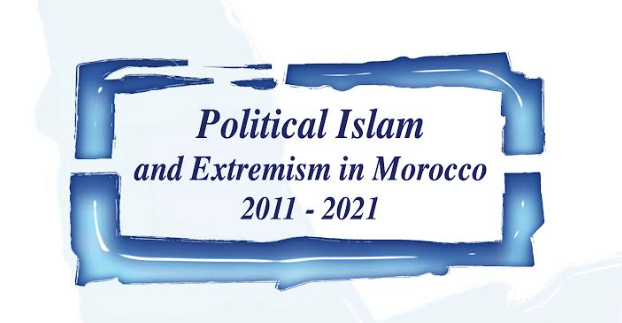Although ostensibly drawing on Islamic principles, the IS ideology distorts them to spawn a separate worldview not captured simply by examination of religiosity. The distortions that distinguish this ideology from Islam would be apparent to a specialist in jihadist groups or in Islamic theology, but may not be manifest to a PCVE practitioner or official. Understanding the three concepts below should help more accurately assess the extent to which one adheres to IS ideology.
This guide requires a disclaimer. I am not a Muslim religious authority and the concepts outlined here are meant to be introductory for those less familiar with jihadism based on my own research on jihadist organizations. Any use of this material for practitioner purposes should be approached with caution and great care and is not meant to replace the judgements of qualified religious authorities.
Apocalypticism. Belief in Judgement Day is a basic tenet of Islam.[2] IS, however, ventures beyond this to profess that the apocalypse is near and fancies itself the army of believers prophesied to clash with the unbelievers when “the Hour” arrives.[3] In its propaganda, IS makes numerous references to the apocalypse. Its major English-language magazines were known as Dabiq and Rumiyah, the Syrian town prophesied as the site of the final battle between good and evil and a reference to the army of “Rome” that will appear there, respectively. Dabiq’s tagline says that the group will burn “the crusader [Christian] armies in Dabiq.”[4] In the Islamic State’s al-Naba Arabic-language newsletter issue released in January 2022, the group referred to its then-ongoing assault on Ghwayran Prison in Syria as “Malhamat Ghwayran” – the word “malhamah” referencing a great battle prophesied to occur during the apocalypse.[5] The IS obsession with the apocalypse is a defining characteristic of its ideology.
PCVE practitioners assessing the proneness of an individual to IS beliefs may examine to what extent one’s views align with this apocalyptic vision. Some possible elements to be aware of is whether an individual sees themselves as a potential soldier in the prophesied army of believers; how near one believes the apocalypse to be and whether one can even make a judgement on the proximity of the Hour; or whether one may identify certain people as future agents of the antichrist (or “Dajjal”). These measures are themselves not perfect, yet they provide more nuance than a broad religiosity indicator and avoid stigmatizing observant Muslims.
Jihad as individually mandated violence. The term “jihadist” derives from the Arabic word “jihad” (literally “struggle” or “effort”). The word can have a variety of meanings, including an inner struggle for personal improvement or divinely sanctioned war.[6] Violent groups calling themselves jihadist (or mujahidin) insist on the latter interpretation, claiming that they are fighting a defensive war against foreign occupiers or corrupt apostates in Muslim lands. Further, these organizations maintain that violent jihad is incumbent upon every individual Muslim,[7] following the teachings of jihadist ideologue Abdallah Azzam.[8] Jihadist groups use this individual obligation to justify foreign fighter mobilizations and terrorist attacks.
Understanding this distinction is important for assessing one’s level of adherence to jihadist ideology. A deradicalization or rehabilitation practitioner should keep it in mind when assessing returnees. Do they agree with a view of jihad as primarily violent and is it defensive in nature? Is it individually mandated or can it be delegated communally? What is the proper way to conduct jihad?
The caliphate as the only form of government. In June 2014, IS declared itself the restored “caliphate.”[9] It then proclaimed in Dabiq that “the world has divided into two camps,” with “Islam and faith” on one side and “kufr (disbelief) and hypocrisy” on the other.[10] All those supposedly on the side of the righteous were now required to swear allegiance to the Islamic State’s self-styled “caliph” Abu Bakr al-Baghdadi, accepting his rule over all other forms of government. Monarchic and republican forms of government were to be rejected, with the “idol of democracy” singled out by al-Baghdadi for special condemnation.[11]
This is an important point for assessing an individual’s level of radicalization. A preference for sharia (Islamic law) governance and appreciation for the historical caliphate could be completely acceptable. PCVE practitioners must go beyond superficial notions about these concepts and ask whether an individual believes the caliphate should be restored through force. Even further, it is important to understand whether one sees the caliphate as the only legitimate form of government, with the existing monarchies and republics of the world lacking any legitimacy. Grasping these nuances will facilitate evaluation and assessment, much needed activities for building more effective reintegration programs.
[1]* Ido Levy is an associate fellow working with the Institute’s Military and Security Studies Program.
[2] F. V. Greifenhagen, “The Apocalyptic End of the World: The View from Islam,” Consensus 26, no. 2 (2000): 48.
[3] Graeme Wood, “What ISIS Really Wants,” The Atlantic, March 2015, https://www.theatlantic.com/magazine/archive/2015/03/what-isis-really-wants/384980/.
[4] Dabiq, Issue 1, July 5, 2014, https://jihadology.net/2014/07/05/al-%e1%b8%a5ayat-media-center-presents-a-new-issue-of-the-islamic-states-magazine-dabiq-1/.
[5] Al-Naba, Issue 323, January 27, 2022, https://jihadology.net/2022/01/27/new-issue-of-the-islamic-states-newsletter-al-naba-323/.
[6] Michael Bonner, Jihad in Islamic History: Doctrines and Practice (Princeton: Princeton University Press, 2008), https://press.princeton.edu/books/paperback/9780691138381/jihad-in-islamic-history.
[7] An individual obligation as opposed to a collective/communal one. See, Yousef Wahb, “Fard Kifayah: The Principle of Communal Responsibility in Islam” (Yaqeen Institute, June 10, 2021), https://yaqeeninstitute.org/read/paper/fard-kifayah-the-principle-of-communal-responsibility-in-islam.
[8] Malet, Foreign Fighters, 167.
[9] “Isis Rebels Declare ‘Islamic State’ in Iraq and Syria,” BBC News, June 30, 2014, sec. Middle East, https://www.bbc.com/news/world-middle-east-28082962.
[10] Dabiq, Issue 1, July 5, 2014, https://jihadology.net/2014/07/05/al-%e1%b8%a5ayat-media-center-presents-a-new-issue-of-the-islamic-states-magazine-dabiq-1/.
[11] Ibid.










